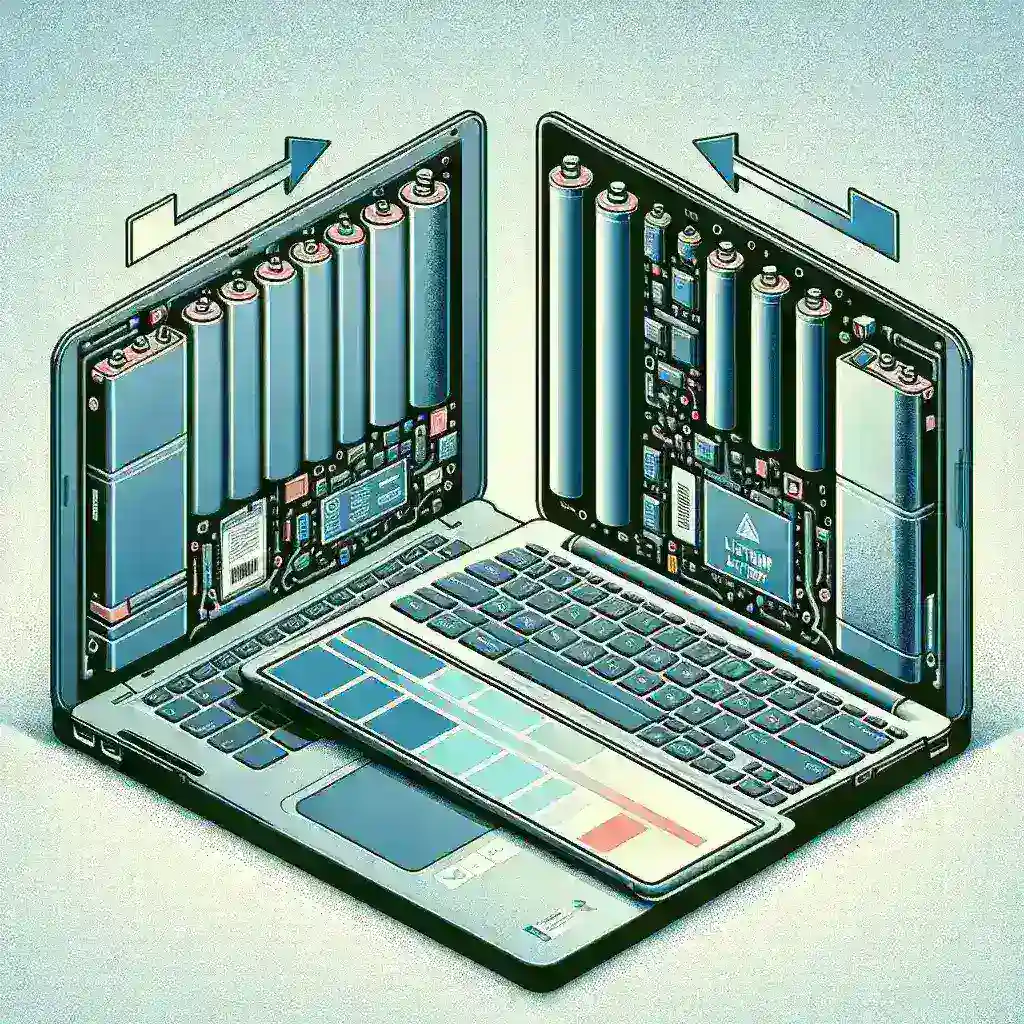Introduction
In the ever-evolving world of technology, the efficiency and longevity of portable devices are paramount. One of the most significant advancements that has contributed to the increased autonomy of laptops is the transition from nickel-based batteries to lithium-ion batteries. This article delves into how this switch has transformed the landscape of laptop usage, providing users with longer battery life and enhanced performance.
The Historical Context of Battery Technology
To fully appreciate the impact of lithium batteries, we must first understand the historical context of battery technology in laptops. Initially, laptops predominantly used nickel-cadmium (NiCd) and later nickel-metal hydride (NiMH) batteries. While these batteries served their purpose, they came with several limitations:
- Memory Effect: NiCd batteries were notorious for the memory effect, which caused them to lose their maximum energy capacity over time if they were not fully discharged periodically.
- Limited Capacity: Both NiCd and NiMH batteries offered lower energy densities, resulting in shorter usage times between charges.
- Environmental Concerns: Nickel-based batteries posed environmental hazards due to the toxic materials involved in their manufacturing and disposal.
The Rise of Lithium-Ion Batteries
The introduction of lithium-ion (Li-ion) batteries marked a pivotal moment in battery technology. They emerged in the early 1990s and quickly became the standard for portable electronics, including laptops. Some key advantages of lithium-ion batteries include:
- Higher Energy Density: Lithium batteries can store more energy in a smaller and lighter package compared to nickel-based batteries, allowing for thinner and lighter laptop designs.
- No Memory Effect: Li-ion batteries do not suffer from the memory effect, enabling users to charge them at any time without worrying about degrading their lifespan.
- Longer Lifespan: These batteries typically have more charge cycles, meaning they can go through more discharges and recharges before losing a significant portion of their capacity.
Impact on Laptop Autonomy
The switch to lithium batteries has had a transformative effect on laptop autonomy. Here are several ways in which this transition has extended battery life:
1. Improved Energy Efficiency
Modern laptops utilize advanced power management technologies that work hand-in-hand with lithium-ion batteries. These technologies optimize the power consumption of components, resulting in:
- Enhanced performance during intensive tasks while conserving energy when performing light tasks.
- Dynamic adjustments to CPU and GPU performance based on current usage, maximizing battery life without sacrificing performance.
2. Lightweight and Portable Designs
The high energy density of lithium-ion batteries allows manufacturers to create lighter laptops without compromising on performance. This portability encourages users to take their devices on the go, further enhancing usability and convenience.
3. Real-World Battery Life Examples
With lithium-ion technology, users can expect significantly longer usage times. For example:
- Typical laptop models now boast battery life ranging from 8 to 12 hours on a single charge, while older nickel-based models struggled to offer 4 to 5 hours.
- Some high-end laptops equipped with lithium batteries can even achieve over 15 hours of battery life, accommodating users’ demands for extended mobility.
Future Predictions and Innovations
As technology continues to advance, the future of laptop batteries looks promising. Innovations such as solid-state batteries and improved lithium-sulfur technologies are on the horizon, offering even greater efficiency and longer life. The potential benefits include:
- Enhanced safety with reduced risk of fire and overheating.
- Greater energy storage capabilities, leading to even longer laptop autonomy.
Conclusion
The transition from nickel-based batteries to lithium-ion technology has profoundly affected laptop autonomy, allowing for longer battery life and enhanced user experience. As we continue to innovate and improve battery technology, users can expect even greater advancements that will ultimately lead to more efficient and eco-friendly portable devices. The journey of battery technology is far from over, but the strides made thus far highlight the importance of this change in the realm of laptops.
